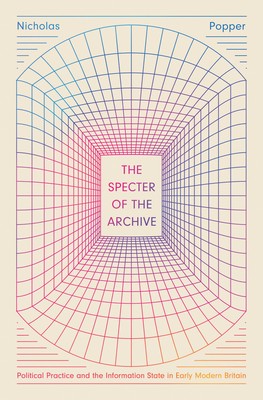
- We will send in 10–14 business days.
- Author: Nicholas Popper
- Publisher: University of Chicago Press
- ISBN-10: 0226825973
- ISBN-13: 9780226825977
- Format: 15.2 x 22.9 x 2 cm, minkšti viršeliai
- Language: English
- SAVE -10% with code: EXTRA
Reviews
Description
An exploration of the proliferation of paper in early modern Britain and its far-reaching effects on politics and society. We commonly think of ourselves as living amid an unprecedented abundance of information. In The Specter of the Archive, Nicholas Popper shows that earlier eras had to grapple with similarly mixed blessings. He reveals that early modern Britain was a society newly drowning in paper--for them a light and durable technology whose spread allowed statesmen to record drafts, memoranda, and other ephemera that might otherwise have been lost, and also made it possible for ordinary people to collect political texts. As the volume of original paperwork ballooned, the number of copies grew even more: secretaries took down version after version of letters, records, policy proposals, and other documents. As those seeking to advance their careers flooded the government with paper, information management became a core element of politics, and England's history of flexible institutions coalesced into the image of a stable state. Focusing on two of the primary political archives of early modern England, the Tower of London Record Office and the State Paper Office, Popper traces the circulation of their materials through the government and the broader public sphere. In this early media-saturated society, we find the origins of many of the same issues we face today: Who shapes the archive? Can we trust the picture of the past and present that it shows us? How do we decide what to preserve, what to copy and disseminate, and what to discard? And, in a more politically urgent vein: Does a huge volume of widely available information (not all of it accurate) risk contributing to polarization and extremism?EXTRA 10 % discount with code: EXTRA
The promotion ends in 21d.06:17:10
The discount code is valid when purchasing from 10 €. Discounts do not stack.
- Author: Nicholas Popper
- Publisher: University of Chicago Press
- ISBN-10: 0226825973
- ISBN-13: 9780226825977
- Format: 15.2 x 22.9 x 2 cm, minkšti viršeliai
- Language: English English


Reviews